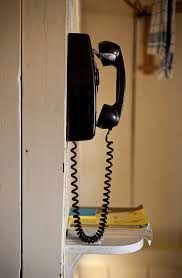Thomas More was convicted of treason, and then beheaded, at the dictate of Henry VIII for refusing to acknowledge him as the head of the Church of England. More studied many classic works, the law, and even the discipline of the Carthusians, in preparation for becoming a monk, but at length decided that his calling was to serve in politics, eventually becoming a confidant of the king, prior to their rift. His refusal to bow to Henry's wishes led to his demise, but his honorable, unyielding stance became a beacon for many. His life seemed to echo the tumultuous time in which he lived; the Renaissance was unfolding, and new veins of thought regarding religion, man’s worth as an individual (Humanism), and the development of new social structures were gaining a foothold.
A friend of Eramus, another great "thinker" of the time, More spent time in contemplating a society governed by reason, not the turmoil of faulty political systems, religious disputation and social stratification, where opportunity existed for all men, and social class was not restrictive of individual growth, both economically and intellectually. I wonder what he would think of the world in which we live, still stratified with class systems, poverty, religious and political machinations? Men can be so thoughtless of any sphere beyond the narrow one in which they reside. Do we take seriously the mandate “enter to learn; go forth to serve”? The world is in need of a broader view grounded in fundamental, eternal principles of moral truth and reason. More spoke correctly when he said, “One of the greatest problems of our time is that many are schooled but few are educated” (More, Selected Writings). The problem still exists today, despite technological advances.
I was intrigued by Sean M’s observation that more technology tying us together has also led to more isolation. I am old enough to remember when neighbors sat on front porches, and, if you were from a small town, there was the house (or empty lot) in the neighborhood where all the kids congregated, which was okay, cause everybody knew everybody (and their parents, grandparents, aunts, uncles and cousins, etc). Our single house phone hung on the wall in the kitchen; privacy extended only as far as the cord would reach. Amazingly, without cell phones, hand-held electronic devices, or social media, if my siblings or I misbehaved somewhere my parents knew all the details BEFORE we even got home. So I wonder, are we going forward or backward?

That's an interesting concept - the idea that greater communication can widen the rift between those that care and those that don't - for lack of a better classification scheme. While there are huge, innovative things happening in almost every field it's true that there is also a corresponding growth in the numbers of despondent, uncaring. I can't help but wonder if this is unique to our era, or if this was something that was seen to some extent during The Renaissance?
ReplyDelete